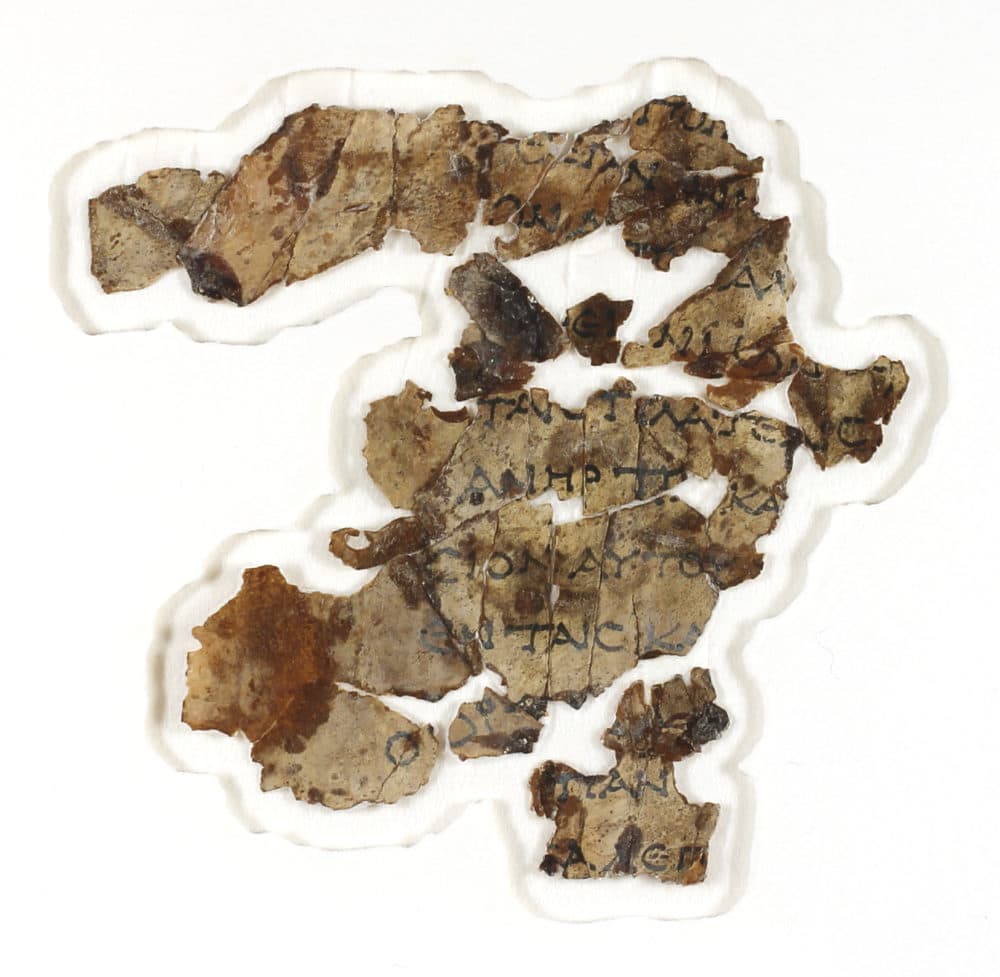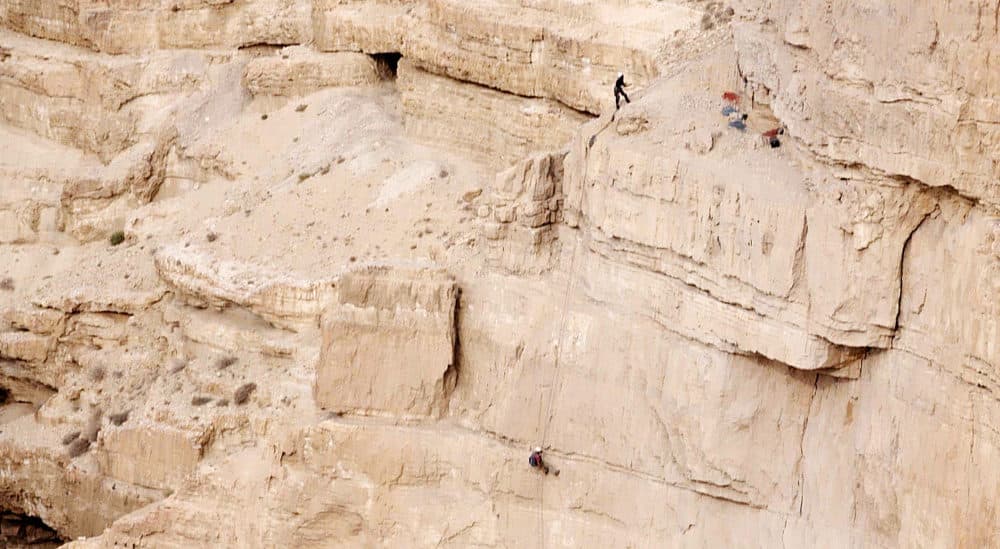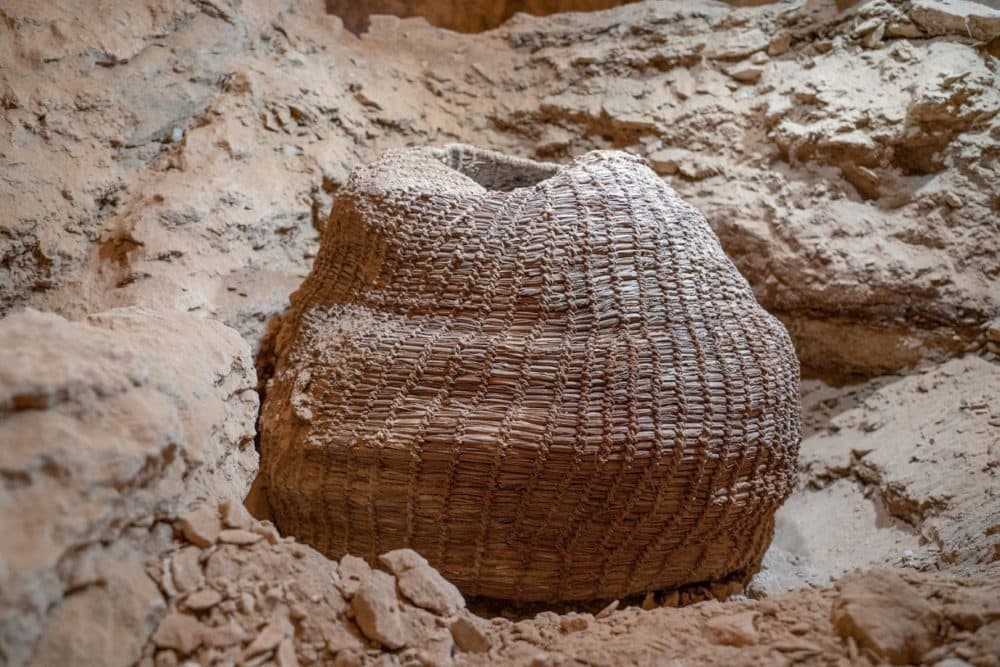Advertisement
New Dead Sea Scrolls Unearthed During Excavation In Israel's Cave Of Horror
Resume
Archaeologists discovered new pieces of the Dead Sea Scrolls for the first time in more than six decades.
Oren Ableman, a Dead Sea Scrolls scholar and a member of the Israel Antiquities Authority, and his team of archeologists found the ancient biblical texts in caves in Israel.
“These are tiny scraps,” Ableman says of the scrolls. “But some of them, we did manage to kind of put a puzzle together.”
To retrieve the scrolls, a team rappelled down a cliff and entered the Cave of Horror. Ableman says there are two explanations behind the cave’s name, and it’s likely a combination of both.
The first is that the cave can only be entered by going down a steep, “frightening” cliff, he says.
“Personally, it's one of the only caves I do not want to go into. I'll leave that to the expert rappellers,” he says.

The other reason dates back to the 1960s, when archaeologists first discovered the cave. Inside, they found nearly 40 skeletons.
While the scrolls are only fragments, the team managed to piece some of them together. One fragment turned out to be the fifth verse in chapter one of the Book of Nahum. Another was verses from the eighth chapter of Zechariah.
The scrolls are in Greek, which Ableman says isn't the typical language found in biblical books in the Judean deserts.
The most famous Greek translation of the Hebrew Bible is the Septuagint. While the fragments that Ableman and his team found aren’t the Septuagint, he says their pieces are a reworking of it.
In their version, the name of God is in ancient Hebrew script while the remaining text is in Greek. Ableman says this shows the importance of God.
The team also uncovered an ancient basket that was completely intact. Ableman says that finding the basket helps understand early human civilization since it comes before the invention of ceramics.
“It looks completely new,” Ableman says, “but it turned out to be 10,500 years old, which makes it, to the best of our knowledge, the oldest complete basket ever discovered anywhere in the world.”

As a Dead Sea Scroll scholar, discovering more fragments was a dream Ableman never expected to come true.
“This is something that we hope will also help us gain knowledge that will help us conserve the other scrolls and make sure that they survive much longer,” he says.
Correction: The Dead Sea Scroll fragments were found in Israel, not in the West Bank. We regret the error.
Karyn Miller-Medzon produced and edited this interview for broadcast with Todd Mundt. Jeannette Jones adapted it for the web.
This segment aired on March 23, 2021.

